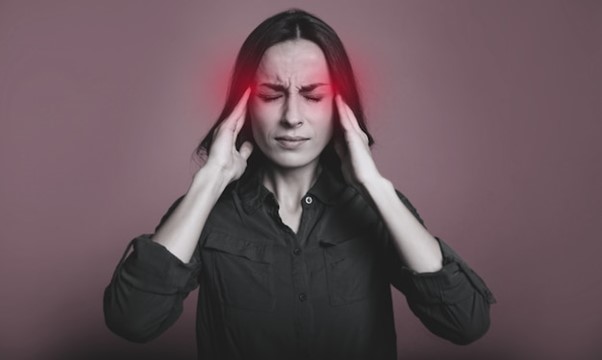Migraines are more than just headaches; they are a widespread neurological condition affecting many lives. Understanding migraines is the first step toward management and migraine relief. This blog aims to empower you with knowledge, helping you identify and address this issue. Migraines can disrupt work, family time, and hobbies. Thus, finding effective migraine relief is essential. Exploring symptoms, causes, and strategies for migraine relief is crucial for anyone affected by this condition. Let's delve into how migraines impact life and how you can find relief.
Decoding Migraines: What They Are
In simple terms, migraines are intense headaches often accompanied by nausea and sensitivity to light or sound. Unlike regular headaches, migraines can come with throbbing pain and last longer. Typical migraine symptoms include severe pounding on one side of the head. Did you know migraines affect about 12% of people? They're more common in women than men. Children and adults can experience migraines, although they usually begin during adolescence. While there is no known cure, understanding the triggers and symptoms can help manage the condition better.
Spotting the Symptoms of Migraines
Migraines come in stages. The prodrome phase might bring mood changes or cravings. During an attack, nausea and sensitivity disrupt daily life. Postdrome follows, causing fatigue or confusion. Recognizing these stages is crucial for effective migraine relief. Nausea, vomiting, and extreme sensitivity are common signs. The throbbing pain, often on one side, helps distinguish migraines from other headaches. Knowing these patterns can aid in managing and reducing attacks.
Uncovering Causes and Triggers of Migraines
Migraines often run in families, hinting at a genetic link. Women experience migraines more due to hormonal shifts. Environmental factors play a role too. Foods like chocolate and cheese, stress, irregular sleep, and lifestyle can trigger migraines. Keeping a note of these triggers is vital. Recognizing personal migraine triggers helps in adapting your environment and habits to reduce occurrences.
Recognizing Risk Factors for Migraines
Certain factors increase the chances of having migraines. Age and gender play a role, with women more prone to migraines. Medical issues like depression or anxiety can worsen migraines. Some psychological elements also make migraines more frequent or severe. Understanding these risk factors can aid in preventive care and management.
Identifying and Managing Migraine Triggers
Migraine triggers are vital to pinpoint. A migraine diary helps identify patterns, revealing when and why attacks happen. Common triggers include bright lights, loud noises, or abrupt weather changes. Simple adjustments, like using sunglasses or earplugs, can make a difference. Effective migraine prevention involves recognizing and avoiding migraine triggers while adopting healthy lifestyle changes.
Exploring Medical Treatment Options
For effective migraine relief, various medications are available. Over-the-counter drugs like ibuprofen can help. Prescription meds might be needed for severe cases. Preventive medications reduce the frequency of migraine episodes. Consult with healthcare providers to tailor treatment to your needs. It's essential to find a drug regime that aligns with your symptoms for optimal migraine relief.
Lifestyle and Natural Strategies for Migraine Relief
Lifestyle changes can offer significant migraine relief. Staying hydrated and eating balanced meals is crucial for managing migraines. Regular exercise, like walking or swimming, helps reduce stress—a common migraine trigger. Migraine and diet also go hand in hand. Avoid foods known to trigger attacks, but include those rich in magnesium and omega-3 fatty acids. Managing stress through techniques like yoga or meditation greatly aids in migraine and stress management, ensuring more prolonged periods of migraine relief.
Alternative and Complementary Therapies
Some find relief through alternative therapies. Massage, acupuncture, and relaxation techniques offer comfort. Herbal supplements like ginger and feverfew have mixed results but can be helpful. A holistic approach combining these therapies with standard treatments enhances overall migraine relief.
The Importance of Sleep and Rest
A consistent sleep schedule naturally aids migraine prevention. Create a calming sleep environment—dim lights and comfortable bedding help. If a migraine strikes, rest in a dark, quiet room to minimize its impact. Ensuring good sleep hygiene supports overall health and reduces the frequency of attacks.
When to Seek Medical Help
Sometimes, it's essential to seek immediate medical help. If your migraines worsen or change in nature, consult a doctor. Untreated migraines can lead to severe complications. Early intervention with medications and lifestyle counselling makes a vast difference.
Conclusion and Reader Engagement
Understanding migraines empowers you to manage attacks better. With the right strategies, you can reduce frequency and severity. Personalized care tailored to your needs is vital. For professional guidance, contact Wester Super Speciality Hospital. They offer a range of treatments and expert consultations to help you manage migraines effectively. Remember, you are not alone, and support is just a call away. Embrace this knowledge to lead a life with fewer disruptions from migraines.




